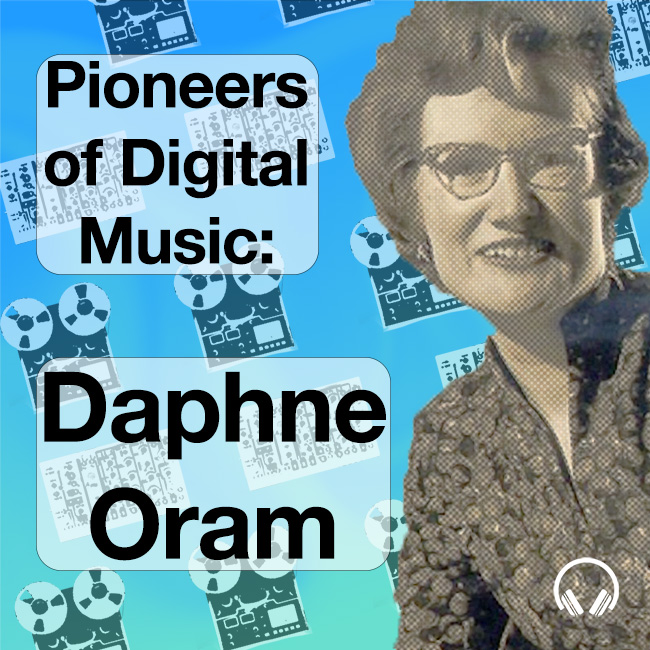The realm of digital and electronic music is a vibrant and ever-evolving landscape that owes its existence to pioneers who pushed the boundaries of sound. Among them, Daphne Oram, a visionary composer, inventor, and co-founder of the BBC Radiophonic Workshop, stands tall as an icon of innovation and creativity. Through her groundbreaking work in electronic music and the development of the Oramics technique, Daphne Oram left an indelible mark on the world of digital music that continues to resonate to this day.
If you're interested in Electronic Music Producion and want to learn how to make your own weird, wobbly sounds, then become an All-Access Member.
A Journey into Sound:
Born on December 31, 1925, in England, Daphne Oram's fascination with sound began at an early age. As a teenager, she discovered the potential of electronic sound manipulation and was determined to explore its possibilities further. Her relentless pursuit of knowledge led her to study sound engineering and acoustics, ultimately leading her to co-found the BBC Radiophonic Workshop in 1958.
The BBC Radiophonic Workshop:
The BBC Radiophonic Workshop was a pioneering institution that served as a creative hub for composers and sound engineers seeking to experiment with new sonic possibilities. Oram's contribution to the workshop was unparalleled, and she was instrumental in shaping its ethos of sonic experimentation. Working alongside other visionaries, she utilized early tape recorders, oscillators, and homemade electronic instruments to create innovative soundscapes and music for radio, television, and film. You can listen to an excerpt of some of Daphne's innovation in the below video, Pulse Persephone.
The Oramics Technique:
One of Daphne Oram's most significant contributions to the world of digital music was the invention of the Oramics technique. Developed during the late 1950s and early 1960s, the Oramics technique allowed composers to create electronic music visually. Oram's machine, the Oramics Machine, was a large, complex device consisting of a series of photoelectric cells and a unique graphical interface. By drawing on the surface of the machine, composers could directly control the sound and manipulate its various parameters.
The Legacy Lives On:
Daphne Oram's work not only pushed the boundaries of electronic music but also inspired countless artists who followed in her footsteps. Her pioneering spirit laid the foundation for the development of synthesizers and the evolution of electronic music in subsequent decades. Artists such as Delia Derbyshire, Karlheinz Stockhausen and Brian Eno were all influenced by Oram's innovative approach to sound creation.
Moreover, her revolutionary Oramics technique paved the way for future advancements in graphical sound manipulation, digital music software like digital audio workstations (DAWs) and music production tools that are widely used today. Oram's influence can be seen in the works of contemporary electronic musicians who continue to explore the limitless possibilities of sound and technology.
Daphne Oram's legacy as one of the pioneers of digital music is undeniable. Her relentless curiosity, inventive spirit and dedication to pushing the boundaries of sound opened up new avenues for musicians, composers and sound artists. By co-founding the BBC Radiophonic Workshop and inventing the Oramics technique, she forever changed the landscape of electronic music.
Daphne Oram's impact continues to be felt in the world of digital music, inspiring generations of artists to explore new sonic territories. Her groundbreaking work serves as a testament to the power of innovation, imagination and the transformative nature of music. As we move forward into an increasingly digital age, Daphne Oram's pioneering spirit remains an inspiration for musicians and creators, reminding us of the incredible possibilities that lie at the intersection of sound, technology and human creativity.
If you're interested in Electronic Music Producion and want to learn how to make your own weird, wobbly sounds, then become an All-Access Member.

